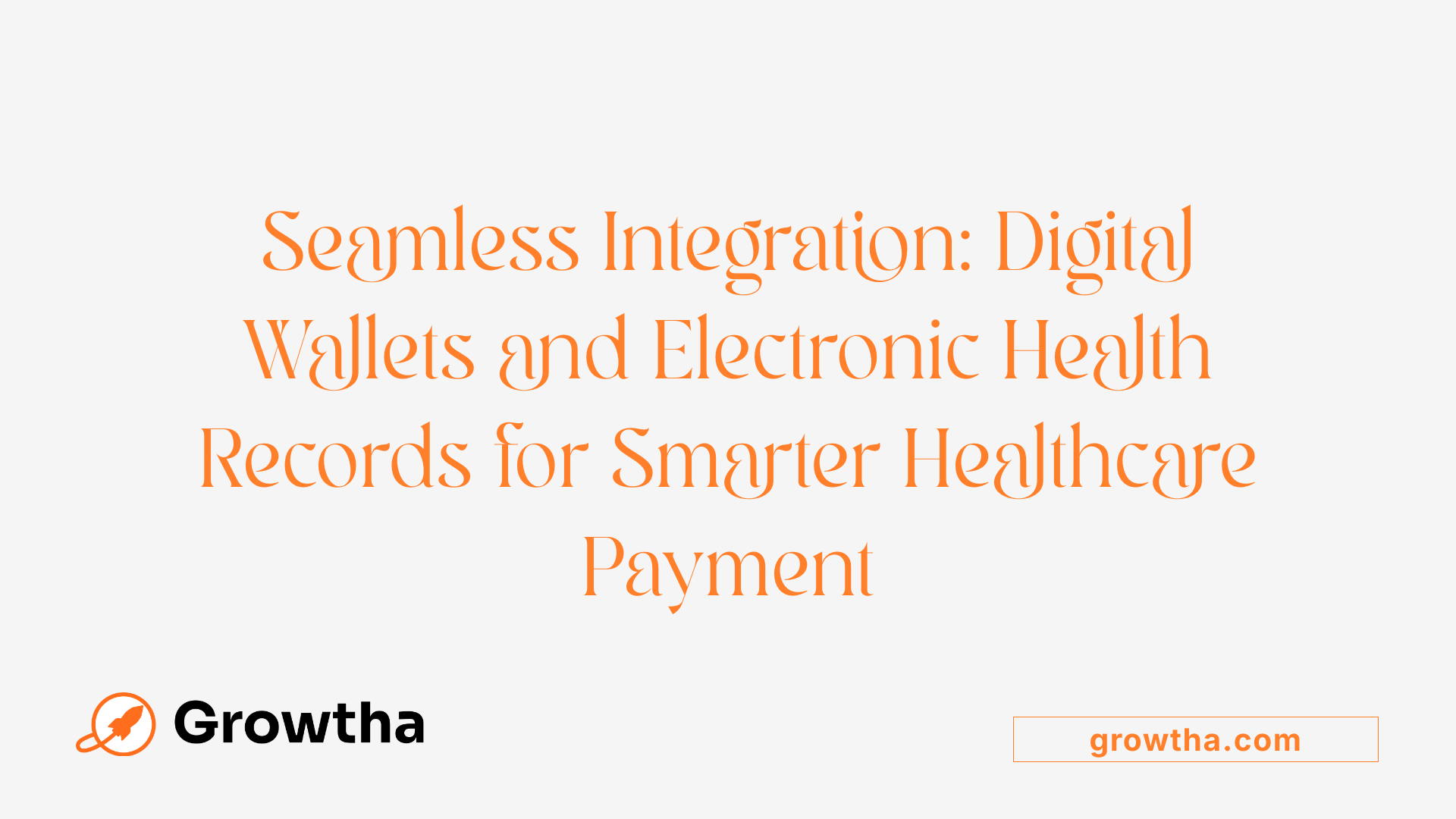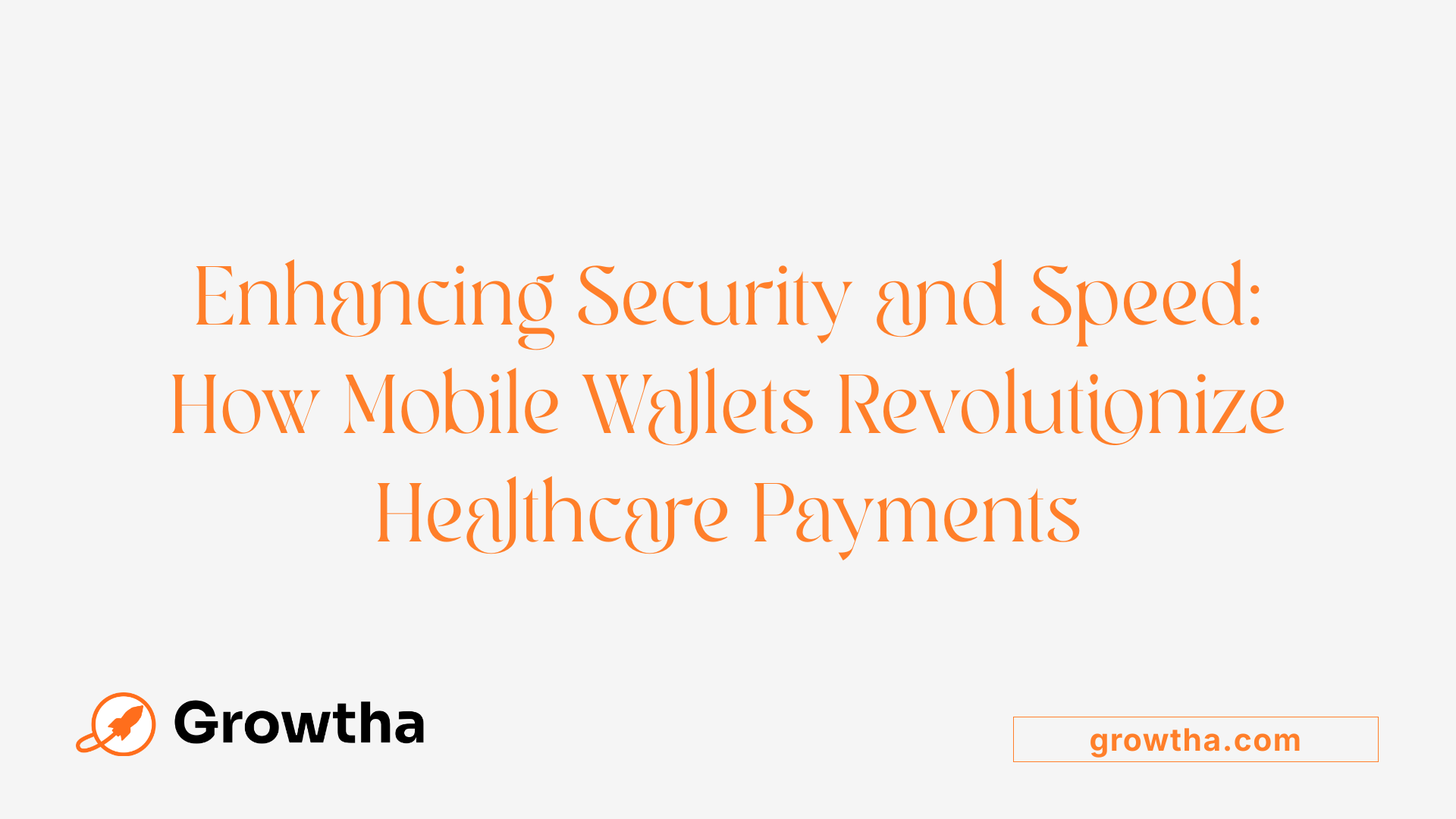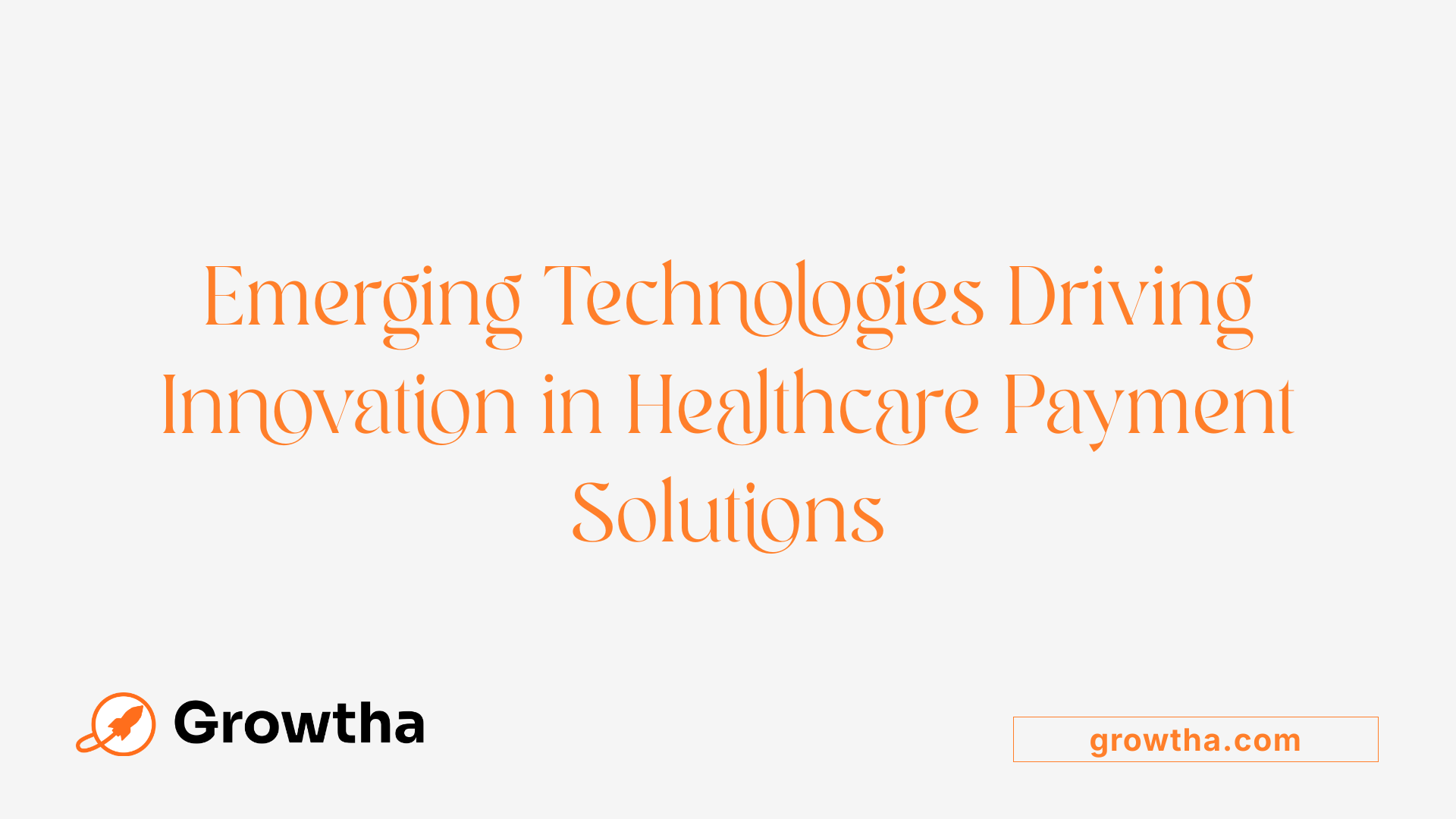The Role of Mobile Wallets in Healthcare Payments
Transforming Healthcare Payments with Digital Wallet Innovation


The Role of Mobile Wallets in Healthcare Payments
Embracing a Cashless Future in Healthcare
The rapid evolution of digital payment technologies has significantly impacted various sectors, with healthcare experiencing profound transformations. Mobile wallets and digital payment methods are now at the forefront, offering streamlined, secure, and user-friendly solutions that benefit both patients and providers. This article explores the multifaceted role of mobile wallets in healthcare payments, examining their integration, benefits, technological advancements, security features, and future prospects.
Understanding Mobile Wallets in Healthcare

What is the purpose of a mobile wallet in the context of mobile payments?
A mobile wallet in the realm of healthcare serves as a secure, virtual space that stores sensitive payment details, such as credit, debit, and loyalty card information, on a smartphone or a compatible device. This digital storage facilitates faster, contactless transactions, allowing patients to pay at healthcare facilities by simply tapping their device on NFC-enabled payment terminals.
Using a mobile wallet streamlines the payment process, reducing the need for cash or physical cards. Patients can also store multiple payment methods, preferences, and communication options like electronic statements or text alerts. This convenience enhances the overall experience, making payments quick, secure, and less cumbersome.
Mobile wallets support various functionalities tailored for healthcare, including auto-pay features, payment plans, and integration with electronic health records. In clinics, hospitals, or pharmacies, these digital tools enable seamless transactions directly within patient portals, apps, or through contactless POS systems. Moreover, encryption, biometric authentication, and tokenization technologies reinforce data security, aligning with healthcare’s strict security standards.
Types of mobile wallets and their functionalities
Mobile wallets are generally categorized into three types:
- Open wallets: These allow payments to multiple merchants and are often linked with major banks or payment networks like Google Pay or Samsung Pay.
- Closed wallets: These are created for specific brands or companies, allowing payment only within their ecosystem, such as store-specific apps.
- Semi-closed wallets: These permit transactions at multiple merchants within a specific network but do not allow cash withdrawals or payments outside their ecosystem.
In healthcare, mobile wallets can function across all these types, providing flexibility depending on the provider’s setup. They support features like biometric security (e.g., fingerprint or facial recognition), encryption, and secure tokenization of card details to protect patient information. They also facilitate quick settlement of bills, automatic payments, and better tracking of medical expenses—making healthcare payments safer, faster, and more convenient.
| Wallet Type | Supported Transactions | Typical Use Cases | Security Features |
|---|---|---|---|
| Open | Payments across various merchants | General, flexible payments | Encryption, biometrics |
| Closed | Payments within a specific ecosystem | Healthcare provider to patient | Tokenization, multi-factor authentication |
| Semi-closed | Payments at multiple related vendors | Healthcare networks, pharmacies | Biometric security, secure app encryption |
By adopting mobile wallets, healthcare providers can meet increasing patient expectations for seamless, cashless transactions, improving satisfaction and operational efficiency.
Integration of Digital Wallets in Healthcare Systems

How do mobile wallet payments work in healthcare transactions?
Mobile wallet payments in healthcare are designed for quick, secure, and easy transactions. Users store their payment details—such as credit or debit card information, bank accounts, or healthcare-specific payment credentials—in a mobile app like Google Pay, Apple Pay, PayPal, or Venmo.
When making a payment, users can opt for contactless methods like NFC (Near Field Communication) or scan QR codes, which transmit encrypted data to healthcare providers’ payment terminals. This process is supported by advanced security features like tokenization, which replaces sensitive information with a unique transaction code, and biometric authentication such as fingerprint or facial recognition to verify identity.
These payments process instantly through secure payment gateways linked with banks and financial institutions, ensuring swift settlement. Patients benefit from a seamless experience, whether they are paying at a clinic, pharmacy, or online portal. The system supports multiple payment methods, including loyalty programs and auto-pay setups, and significantly reduces transaction times and administrative burdens.
Methods of supporting digital wallet transactions
Healthcare providers can support digital wallet payments through several methods:
- Card Present Transactions: For face-to-face payments, vendors need NFC or contactless payment terminals, like those supported by TrustCommerce’s Cloud Payments platform. These terminals communicate wirelessly with digital wallets for instant, secure transactions.
- Online or In-App Payments: Patients can settle bills through integrated systems within patient portals, apps, or websites. Platforms like TC Trustee Premier enable this integration, allowing patients to select their favorite digital payment options seamlessly.
- Integration with Electronic Health Records (EHRs): Some systems, such as Epic and Practice Fusion, support direct payment processing within the EHR environment. This integration simplifies workflow by letting healthcare providers charge without third-party vendors, making billing more efficient and less error-prone.
Integration with Electronic Health Records (EHRs) and platforms
Integrating digital wallets directly with EHR systems offers numerous advantages. It streamlines payment workflows, allowing providers to process payments during patient visits or online. This not only improves operational efficiency but also enhances patient experience by providing a single, unified interface for billing and medical records.
Platforms like Epic enable healthcare providers to accept digital wallet payments efficiently, reducing the need for manual billing and paperwork. Additionally, tools like TC Trustee Premier facilitate integration across various online and mobile platforms, promoting a consistent, user-friendly experience.
Furthermore, these digital solutions are supporting the wider move toward cashless healthcare, enabling timely settlements, reducing costs related to manual processes, and increasing transparency for patients who can view detailed, real-time billing information.
| Method | Support Required | Platform Compatibility | Benefits |
|---|---|---|---|
| Card Present | NFC/contactless terminals | TrustCommerce Cloud Payments | Fast, secure face-to-face transactions |
| Online/In-App | Payment gateway integration | TC Trustee Premier, EHR systems | Convenient, seamless online payments |
| Direct EHR Integration | Embedded payment module | Epic, Practice Fusion | Streamlined workflow, reduced errors |
By adopting these systems, healthcare providers can meet patient expectations for modern, contactless payments while improving financial operations and patient satisfaction.
Security, Efficiency, and Patient Engagement in Healthcare Payments

What is the impact of mobile wallets on healthcare payment security and efficiency?
Mobile wallets have transformed healthcare payments by offering enhanced security features and improving operational efficiency. These digital tools utilize encryption, tokenization, and biometric authentication—such as facial recognition and fingerprint scans—to protect sensitive patient data and reduce the risk of fraud. This level of security not only safeguards financial and health information but also builds patient trust.
In terms of efficiency, mobile wallets enable quick, contactless transactions that streamline the payment process. They allow for automatic filling of payment details, reducing manual entry and errors. Many systems also integrate real-time insurance verification, speeding up claim approvals and reducing administrative delays. This automation shortens revenue cycles and decreases administrative costs.
Furthermore, mobile wallets facilitate seamless billing and payment experiences. Patients can view detailed, transparent bills and choose their preferred payment method within a single interface. This convenience increases patient satisfaction and loyalty.
By merging security and ease of use, mobile wallets support a shift toward more efficient, secure, and patient-centric healthcare payment systems. These advancements not only benefit providers by reducing operational burdens but also enhance overall patient care and experience.
Technological Advancements and Trends in Healthcare Payments

What are the current trends and technological advancements in mobile wallet usage within healthcare?
The landscape of healthcare payments is rapidly evolving, with mobile wallets playing an increasingly central role. Today, healthcare providers are adopting these digital tools to offer faster, more convenient, and secure payment options for patients.
A major trend is the widespread integration of contactless payment options such as NFC (Near Field Communication). Patients can now make quick transactions using their smartphones, wearables, or contactless cards, reducing wait times and enhancing the overall experience.
Technological innovations like biometric authentication—using facial recognition, fingerprint scans, or facial recognition—are significantly enhancing transaction security. These features not only protect patient data but also streamline payment authorization, often eliminating the need for PINs or passwords.
Blockchain technology is making waves by increasing transparency and reducing fraud in healthcare payments. Smart contracts built on blockchain facilitate automatic, tamper-proof payment processes and real-time transaction tracking, potentially lowering operational costs.
Artificial Intelligence (AI) is another transformative force. AI-driven algorithms analyze vast transaction datasets to detect fraudulent activities more efficiently and speed up payment approvals. Additionally, AI enhances payment processing workflows, making them more responsive and accurate.
Healthcare providers are focusing on patient-centric approaches by integrating digital wallets into patient portals and apps. This offers personalized payment plans, automated reminders, and seamless billing experiences, which are linked to the broader goal of improving patient satisfaction and loyalty.
Overall, advancements like tokenization, which replaces sensitive card details with encrypted tokens, are ensuring payments remain secure. The push toward faster, safer, and more user-friendly payment solutions aligns with ongoing efforts to modernize healthcare financial transactions.
These innovations collectively support a shift toward a more digital, efficient, and patient-focused healthcare system. Providers that embrace these technologies are better positioned to meet patient expectations and improve operational efficiency.
Challenges, Future Perspectives, and Case Studies

What are the challenges and future prospects of mobile wallets in the healthcare sector?
Implementing mobile wallets in healthcare faces several hurdles. Ensuring data security and patient privacy remains a top concern, especially with sensitive health information involved. Healthcare providers require secure platforms that prevent data breaches and comply with regulations like HIPAA. Advances in blockchain technology and biometric authentication are helping address these security issues, providing encrypted and user-specific access controls.
Future outlook for digital wallets is optimistic. Growing patient preference for digital payments, coupled with ongoing technological innovations, is set to drive adoption. Enhanced security features such as NFC, tokenization, and AI-powered fraud detection will make transactions faster and safer. Additionally, integrated payment solutions will allow for better cost transparency and real-time billing updates, fostering greater trust and engagement.
Emerging features like tailored payment plans, subscription-based services, and clear cost estimates are forthcoming. Such tools support personalized healthcare financing and can improve financial management for both providers and patients. Moreover, interoperability between digital wallets and electronic health records (EHRs) will boost resource sharing and unified patient data management.
Overall, mobile wallets hold the potential to streamline healthcare payments, strengthen security, and facilitate patient-centered financial services, transforming the healthcare payment landscape.
How do mobile wallets influence patient spending and loyalty?
Mobile wallets make healthcare payments quick and easy, encouraging patients to utilize more services within their provider network. The convenience of auto-filled forms and instant transactions reduces payment barriers, making patients more likely to settle bills promptly.
Loyalty is reinforced through features like reward programs, discounts, and personalized health offers integrated into mobile wallet apps. These features incentivize ongoing engagement and foster trust in healthcare providers.
With transaction data, healthcare organizations can understand patient spending habits and preferences. This insight enables targeted marketing, customized communication, and strategic planning, all of which help retain patients and attract new ones.
Additionally, seamless payment experiences through mobile wallets enhance overall patient satisfaction, which translates into higher likelihood of returning for future services. As patients become accustomed to digital convenience, providers who adopt these technologies can secure a larger share of their healthcare expenditures.
Case example: M-TIBA in Kenya
M-TIBA, a mobile health wallet developed by PharmAccess Foundation, exemplifies innovative healthcare payment solutions in emerging markets. It enables vulnerable populations in Nairobi’s slums to access healthcare services by making payments via mobile phones.
Funds deposited into the M-TIBA wallet are restricted to healthcare-related costs, reducing out-of-pocket expenses and promoting transparency. Patients can use the wallet at participating clinics for services like outpatient care, maternal health, HIV, and tuberculosis treatments.
Since its launch, M-TIBA has reached over 71,000 people, facilitating nearly 118,000 healthcare visits. The program transitioned to local management, ensuring sustainability and trust. Partnerships with foundations, NGOs, and health facilities played a significant role in its success.
This initiative aligns with global health goals by improving access and affordability while leveraging digital technology. It demonstrates how mobile wallets can overcome barriers in resource-limited settings, enhance data collection, and contribute to universal health coverage.
| Aspect | Details | Additional Benefits | | -------- | -------- | ------------------- | | Security | Utilizes encryption, biometric, NFC | | Adoption | Increasing worldwide, especially in digitalized health systems | | Benefits | Faster payments, higher patient satisfaction, cost savings | | Challenges | Data security, regulatory compliance, system integration |
The evolving landscape of healthcare mobile wallets shows promising growth, supported by technological innovations, increasing patient adoption, and successful case studies worldwide.
Digital Transformation in Healthcare Payments
The integration of mobile wallets into healthcare payment systems signifies a pivotal step toward a more efficient, secure, and patient-centric healthcare environment. As technological advancements continue to evolve, these digital solutions promise to streamline transactions, improve security, and foster greater patient engagement. Success stories like the M-TIBA platform in Kenya demonstrate the potential impact of mobile wallets to deepen healthcare access and affordability, especially among vulnerable populations. Moving forward, addressing security challenges and further innovating with emerging technologies such as blockchain and AI will be critical to realize the full potential of digital wallets in healthcare. Ultimately, embracing these innovations not only enhances operational efficiencies but also empowers patients to take active roles in managing their health and finances, shaping a smarter, more inclusive healthcare system.
References
- How To Add Digital Wallets To Your Healthcare Payment Options
- Healthcare Payment Profile: Digital Wallet - InstaMed
- The Revolutionary Benefits of Cashless Healthcare Services - PMC
- More Consumers Use Digital Wallets for Healthcare Expenses
- The Future of Payments: Trends in Digital Wallet Adoption and Usage
- Why Contactless Payments Are No Longer Optional in Healthcare
- Digital Healthcare Payments Prep | Insights - Worldpay
- Survey: 60% of Adults 60+ Use Digital Payments for Healthcare
- Streamline Your Healthcare Payments Process With Digital Wallets







